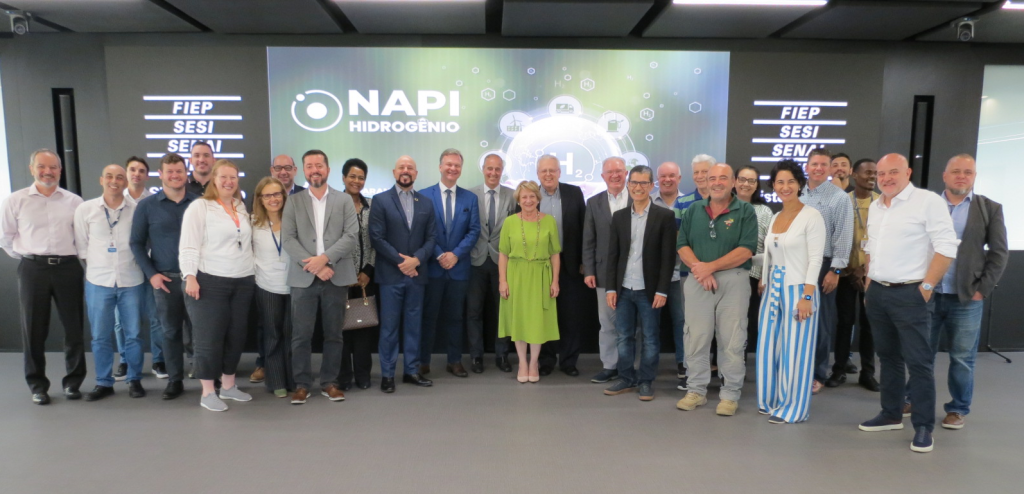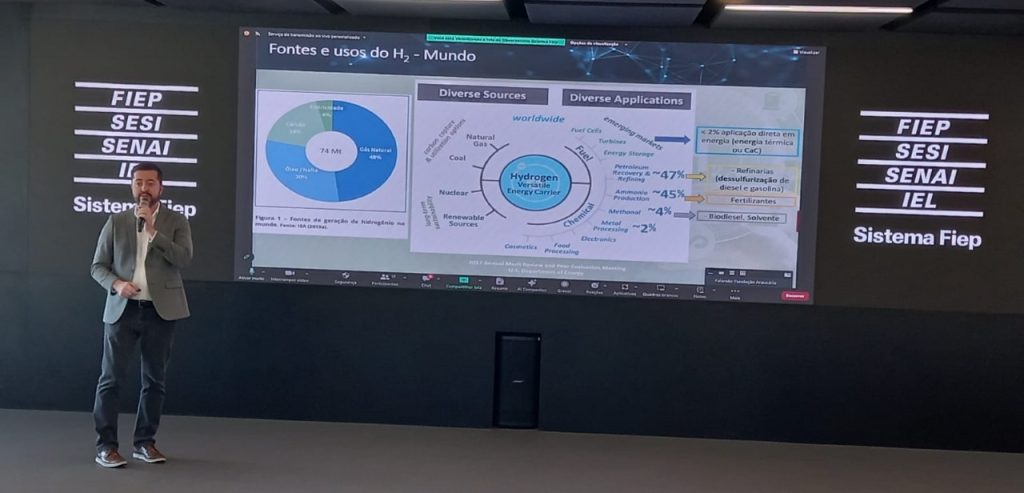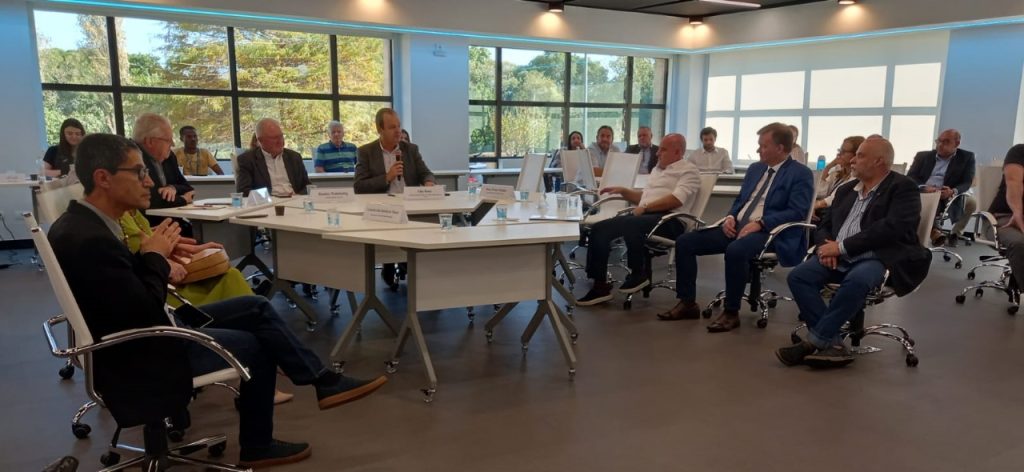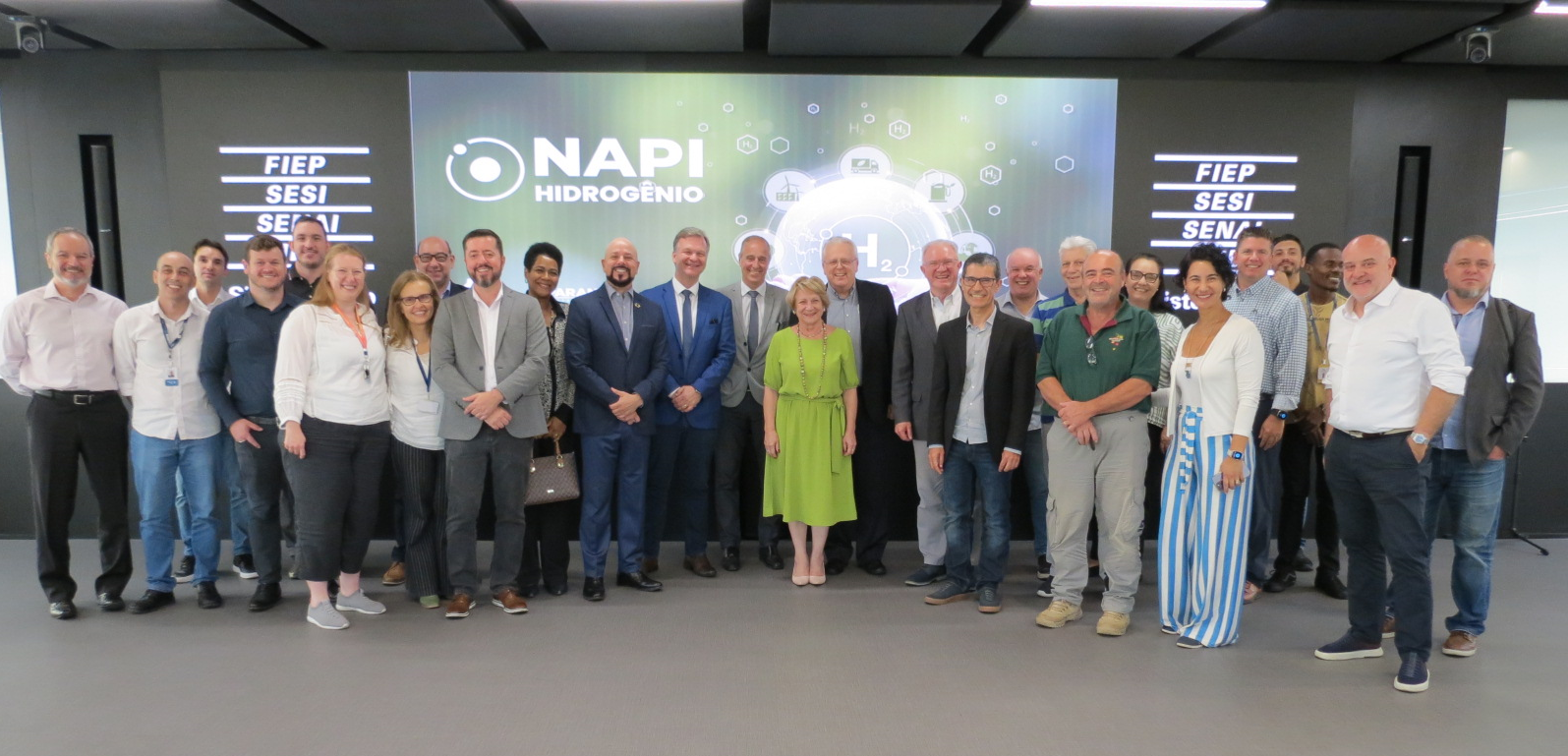Londrina State University is one of the six universities that make it up New Ranking for Hydrogen Research and Innovation (NABI), launched by the State Government, through the Araucaria Foundation (FA) and the Secretariat of Science, Technology and Higher Education (SETI) on Monday (6), in Curitiba. About a hundred guests participated in the launch ceremony, which was held in person and online, including researchers in this field, and representatives of universities, the productive sector, and the government.
Napi Hidrogênio aims to create a research and innovation network in Paraná, seeking to coordinate actions involving public and private institutions, in order to fundamentally promote the development of technologies, the provision of services, and the training of human resources specialized in the field. Low-carbon renewable hydrogen, with the initial priority being to develop a pathway that uses remaining biomass.
About R$ 3.7 million will be invested to make the procedures of the new arrangement viable, which already includes twenty researchers with expertise in the subject of hydrogen (H2) from UEL, UEM, Unicentro and Unioeste, as well as the UFPR and UTFPR. The structure includes twelve laboratories participating in eight postgraduate programs (PPG), as well as partnerships with several institutions in the state of Paraná working in the field of science, technology and innovation (CT&I), the production sector and other collaborators. At UEL, Professor Deize Dias Lopes, from the Department of Civil Construction (CTU), is part of the project.

The president of the Araucaria Foundation, Ramiro Wahrhafteg, emphasized that the new arrangements are designed to carry out collaborative research in the state and that Paraná has an extraordinary network of researchers. “We have approximately 23 thousand doctors in science, technology and higher education institutions in Paraná, and in the knowledge society, doctors make a big difference. That is why they must participate in actions that benefit society.”
According to NAPI H2 coordinator, UFPR Professor Helton José Alves, there are several initiatives that involve hydrogen production using renewable energy sources, but the main focus of NAPI Hidrogênio is to develop a technological path that includes biomass as a source of hydrogen. . “In this context, we are talking about decarbonizing our economy, because we are replacing fossil hydrogen with renewable sources, especially biomass,” the researcher explained.
Research in community service
The president of the Brazilian Hydrogen Association, Paulo Emilio Valadao de Miranda, has pointed to the damage caused by torrential rains that hit Rio Grande do Sul as consequences of the environmental climate emergency. “Brazil is already one of the countries with the highest incidence of extreme weather events. For this reason, we need to decarbonize our society’s activities, and one way to do this is to use hydrogen, a fuel that does not carry carbon, and therefore its use does not contribute to greenhouse gases.” Atmospheric Miranda explained.

Aldo Bona, Minister of Science, Technology and Higher Education, believes that it is necessary for technological assets to be increasingly committed to finding solutions to the real problems faced by society. “We need to invest a lot in science and technology so that we can build a more sustainable reality for our planet,” the minister stressed.
Researcher Hilton José Alves highlighted that there is a suitable scenario in Paraná, which already has Law No. 11,410/23, establishing the State Renewable Hydrogen Policy, approved by Governor Ratinho Jr. in May 2023. “NAPI comes to add efforts to all existing initiatives in Paraná, from In order to promote the development of the hydrogen economy, estimating the production chains that interact with this topic, whether in terms of raw materials, service, logistics, transportation or end-use based on products derived from H2,” highlighted the NAPI Hydrogenio Coordinator.
The General Coordinator of Sector Technologies at the Ministry of Science, Technology and Innovation (MCTI), Rafael Silva Menezes, gave an overview of the Ministry's actions in the field of renewable energy related to the topic of hydrogen and praised the Paraná initiative. “MCTI has made a great effort to work in research networks as is happening in Paraná through new arrangements that seek to improve the use of public resources. The representative of the Ministry of Trade and Investment stressed that this initiative will undoubtedly strengthen the axis of technological development of the National Hydrogen Programme.
Among the institutions that will be partners in NAPI is the Tecpar Institute of Technology in Paraná. “Tecpar would like to collaborate on this line of hydrogen certifications. Always in the context of Parana product evaluation and Parana research,” emphasized CEO, Celso Klos.

National action programmes
The New Research and Innovation Arrangements (NAPIs) aim to produce knowledge in a collaborative way by researchers from Paraná, driven by real demands for the development of strategic sectors of the state, through the contribution of financial resources.
Fundação Araucária's Director of Science, Technology and Innovation, Luiz Márcio Spinoza, presented the strategy for the new research and innovation arrangements. “National Response Action Programs (NAPIs) are created and targeted to meet sectoral, regional and government requirements, in an integrated and sensible way to make better use of existing actors and assets,” he commented.
There are currently 62 National Intellectual Property Programs (NAPIs) operational in the state. The new research arrangements focus on wealth creation and well-being, leading to greater robustness in the support instruments provided by the Araucaria Foundation and thus a better return on investments in research and development for the Paraná community. Research arrangements with UEL participation include, for example, Napi Bioinformatics, Napi Saúde and Napi Taxonline.
With information from the press office of the Araucaria Foundation.

“Wannabe internet buff. Future teen idol. Hardcore zombie guru. Gamer. Avid creator. Entrepreneur. Bacon ninja.”

